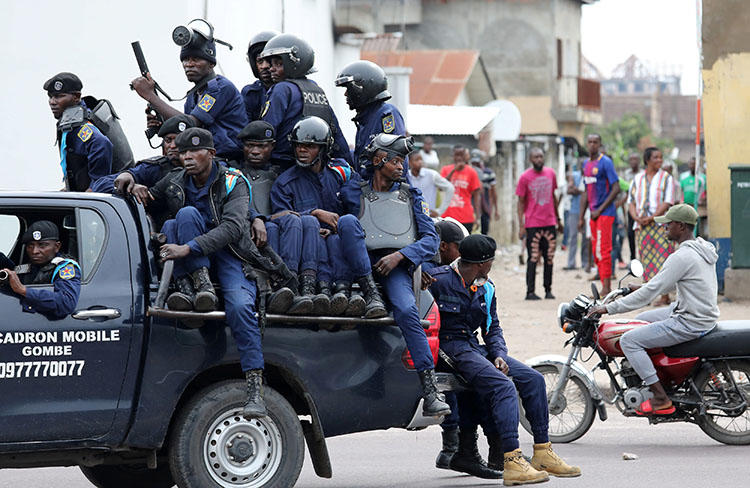On December 30, 2017, the Democratic Republic of Congo’s Telecommunications Minister, Emery Okundji, ordered the country’s telecommunications providers to shut internet and SMS services across the country, according to a media report and the local press freedom group L’Observatoire de la liberté de la Presse en Afrique, (the Observatory of Press Freedom in Africa or OLPA). The minister said the order was given “for reasons of state security,” according to a Reuters report. The order remained in place for three days.
The shutdowns came amid country-wide protests called by the Catholic Church, to demand that President Joseph Kabila step down and hold elections that were scheduled to take place in 2017. Kabila’s second five-year term in office expired in 2016
On January 1, 2018, the DRC broadcast authority cut the transmission of at least four Kinshasa-based radio and television stations– Radio Congo FM, Radio Okapi, Antenne A (AA), and RTVS1–according to OLPA and Edmond Izula, a reporter for the privately owned station Radio Television Satellite 1 (RTVS1). No reason for the order was given, Izula and the OLPA said.
Three of the stations resumed operations the next day, but RTVS1 remained suspended until January 13 because of what the government called “technical issues,” according to OLPA.
“At every major political event of the opposition or civil society, the authorities block [radio and television] broadcasts. In this situation [during internet shutdowns], online media are forced to dry their pen,” Izula told CPJ.
On January 21, 2018, two days ahead of more pro-democracy protests, the government imposed a three-day internet and SMS service shutdown, according to the privately owned online news outlet, Actualite. And, at around 9 A.M. on February 25, 2018, internet and SMS services were blocked–this time for about 10 hours–as more protests occurred across the country, according to a media report.
Minister of Communication Lambert Mende Omalanga told CPJ, “Many media [outlets] use internet to work. So, when you cut the internet of course there is impact.”
Omalanga said that the telecommunications minister had told him the December 30 shutdown was for “security” reasons. When CPJ asked for further clarification, Mende referred CPJ to Okundji and said the issue was not within his jurisdiction.
In a March 16, 2018, phone conversation, Telecommunications Minister Okundji requested that CPJ send questions via email. On March 18, 2018, CPJ received an email sent from one of Okundji’s advisers on behalf of the minister, which acknowledged receipt of the questions and asked for an additional 48 hours for Okundji, who was cc’d in the email, to respond. CPJ agreed to the extension, but as of March 22, 2018, the minister had not replied to the email.
